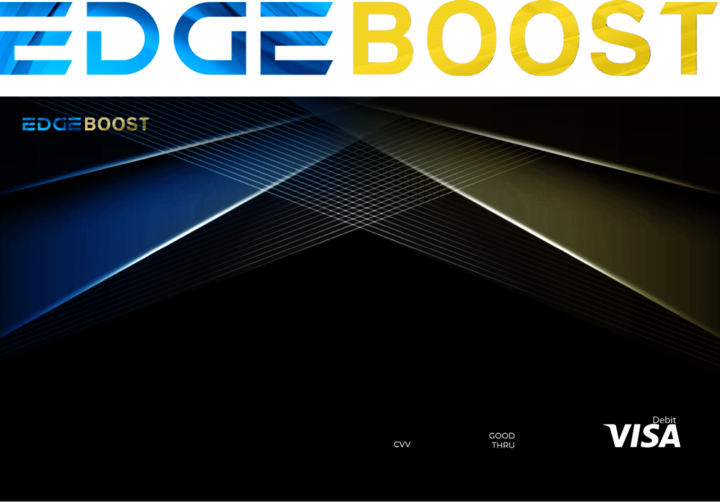Judge grants prediction markets provider’s injunction against NJ regulator.
State-by-state: Hawaii falls, Oklahoma progress.
In +More: Will a college prop bet ban follow from Genius/NCAA deal?
In harmony: The UK Treasury consults on tax harmonization.
Your biggest tech problems. Solved.
Fincore delivers technical solutions for the Gaming industry. For over 25 years we’ve helped clients modernise legacy platforms, unblock roadmaps, integrate complex systems, and apply AI to real-world problems. We’ll help you shape the right strategy, and then we’ll roll up our sleeves and deliver it.
Our edge? A world class team with deep domain knowledge, armed with our highly customisable IP toolkit that adapts to your architecture, whether modernising legacy or starting from scratch. That means faster delivery, smoother integration and less risk.
Strike two
Never saw it coming: Kalshi has scored another major win in court after a federal judge in New Jersey granted its motion for a preliminary injunction against the state’s Division of Gaming Enforcement (DGE).
The ruling follows Kalshi’s earlier victory in Nevada, allowing its sports event contracts to remain live in both states while lawsuits continue.
Flight: Days earlier, the Commodity Futures Trading Commission (CFTC) pulled the plug on a heavily anticipated roundtable to debate the future regulation of prediction markets.
The regulator had been swamped with lobbyists from traditional casino and tribe associations arguing Kalshi, Crypto.com, Robinhood, Polymarket and others active in the space offer illegal gambling via a loophole.
No reason was given for the cancellation and the CFTC has not responded to multiple requests for comment by C+M.
Fight: “I wouldn’t blame [CFTC] acting chair [Caroline] Pham for waiting to see how the court fights turn out,” said Andrew Kim, gambling partner at Goodwin.
“Postponed roundtable notwithstanding, CFTC regulation of prediction markets seems to be inching closer to reality; the only question is, how broadly will the CFTC regulate and will it entangle itself in the fight over sports contracts? If so, when?”
Futureshock: In the New Jersey case, US District Court Judge Edward Kiel said Kalshi showed a “reasonable chance of prevailing” in its fight against the states bidding to kick it out, and faced harm to its reputation and goodwill without court protection.
In the 16-page ruling, Kiel also found Kalshi made a strong case that the CFTC holds exclusive jurisdiction over its markets under the Commodity Exchange Act (CEA).
New Jersey regulators argued Kalshi’s contracts violated state gambling laws, but the court found the “special rule” under the CEA was being misapplied.
The judge agreed with Nevada’s earlier logic that the question is whether the underlying event (like an NCAA game) is lawful, not whether placing a bet is.
New Jersey’s attempts to frame sports event contracts as being outside CFTC jurisdiction were rejected as “unconvincing.”
Eyes will now turn to Maryland, where Kalshi has also taken up the fight against the state’s regulator.
Too hot to handle: Mystery surrounds the fate of the CFTC roundtable, originally scheduled for April 30 but now cancelled with no update on whether it will ever be held.
It had been announced in February by the regulator with the goal of developing “a robust administrative record with studies, data, expert reports and public input” on prediction markets.
Ostensibly an information gathering exercise, most of the submissions beforehand tore into the business model of Kalshi and others, warning they posed a threat to regulated sports betting and responsible gambling protections.
Player Protection, Not Player Prevention
Safer gambling is now a major focus for operators and investors, vital for industry sustainability. Mindway AI’s award-winning software uses neuroscience, AI, and expert assessments to exceed player protection requirements. GameScanner offers automated, early detection of at-risk gambling, allowing timely intervention. Make your player base safer and your business more sustainable and investible.
Learn more at mindway.ai
State by state
Hawaii: The state House and Senate failed to agree on the bill that would have legalized OSB late last week, effectively killing the effort in the current session. The bill, HB 1308, passed both chambers but the amendments caused a joint legislative review and that committee failed to reach a compromise, with the proposed tax rate proving to be the stumbling block.
Oklahoma: Two sports-betting bills have passed a key Senate committee stage, though with the prospects of more changes. Both HB 1047 and HB 1101 propose giving exclusive sports-betting rights to 11 Oklahoma tribes and taxing revenue at a 10% rate. The combination of bills would allow the Oklahoma legislature and voters to approve sports betting without the support of Gov. Kevin Stitt, who opposes any sports-betting legislation that offers tribal exclusivity.
The North Carolina Senate’s budget proposal would double the state’s sports-betting tax rate from 18% to 36%, placing it among the highest in the US. Analysts said the hike is unlikely to deter operators but may lead to higher costs for consumers.
Florida: The state House approved a decoupling bill that would allow thoroughbred tracks such as Gulfstream Park and Tampa Bay Downs to drop live racing while keeping gambling operations. The bill, backed by the Stronach Group, faces strong Senate opposition and a likely veto threat from Florida Governor Ron DeSantis, who warned it would “harm the industry.” Decoupling has killed harness racing in the state, and thoroughbred defenders fear a similar collapse despite the sector’s $3.2bn economic impact.
+More
Genius Sports will exclusively distribute official NCAA data to licensed North American sportsbooks, including real-time insights via its GeniusIQ platform for March Madness and post-season tournaments. However, The Athletic has reported the NCAA will use the extension to introduce a prop betting ban on college athletes, with Genius not allowed to license the data to operators that offer player prop bets for the events.
Lotto.com has sued the Texas Lottery Commission, claiming it illegally bypassed public review in enacting a courier ban. The move follows the resignation of the commission’s executive director and political pressure from Lt. Gov. Dan Patrick over courier controversies. The lawsuit argues the commission reversed years of policy without required legislative or public input.
Red Rock Resorts’ Station Casinos has received approval from the Nevada Gaming Commission to operate the sportsbooks at Treasure Island on the Las Vegas Strip and at two Mesquite casinos.
Swedish operator Svenska Spel blamed government-mandated casino closures for a 4% revenue drop in Q1, even as online revenue grew and now makes up 62% of its business. CEO Anna Johnson said regulatory changes have created “room for investment” in sustainable gambling and long-term transformation.
GuardDog, powered by Underdog, is a pioneering investment fund dedicated to fostering innovation in responsible gaming.
GuardDog supports and accelerates early-stage startups focused on building new and creative solutions to address problem gaming and further responsible gaming.
Ready to be one of the underdogs of responsible gaming?
Visit to apply: https://underdogfantasy.com/guarddog
UK in harmony
The ratchet, nurse: The UK government has opened up its consultation on the harmonization of remote gambling taxes as it hopes to move to a single tax rate, which it claims will “provide tax certainty and increase simplification for remote gambling.”
As it stands, the three currently applicable tax rates range from the general betting duty set at 15% of gross profits, a pool betting duty also set at 15% and a remote gaming duty set at 21%.
In introducing the consultation, the Treasury document stated that gambling tax “should reflect the reality of the gambling industry.”
“Historically, this has meant regular adaptation of tax to keep pace with industry developments and innovations,” it added.
White heat: The document noted the government does not believe that UK gambling tax “as currently structured, is consistent with the government’s objective of tax simplification and modernisation.”
We know which way this is going: The consultation runs until July 21 but sources suggested the industry would be “very surprised” if the consultation comes up with a tax rate that is lower than 21%.
Notably, the Treasury document made the point that the move to online gambling in the last decade or more had led to “increased profits’ for the operators.
“We recognise that remote gambling activities vary substantially – in terms of their economic model, profitability and socio-cultural position,” the Treasury said.
“However, any duty system, including the status quo, involves taxing diverse activities that are sufficiently similar in the same way.”
Fjord falls
Monopoly money: The increase in the number of players that are now playing with the monopoly operator in Norway, Norsk Tipping, is evidence of a decline in the offshore market, according to an interpretation of the official data on the part of the Norwegian Gaming Authority (NGA).
The data from the monopoly showed 2 million Norwegians playing online with Norsk Tipping in 2024, an increase of 11% on the year previous.
Norsk Tipping and Norsk Rikstoto (the Norwegian national tote) saw turnover from online gaming rise 19% to NOK3.1bn ($299m).
At the same time, the NGA said offshore revenues declined to NOK1.3bn, down 19%.
Special delivery: But while the offshore market is “shrinking year by year,” according to NGA’s department director Tore Bell, the effort to completely shut it down would require “very special measures” with the rate of channelization “about to reach a limit.”
Particular focus would need to be paid to younger players who play the games with the highest risk attached, Bell argued.
He suggested several measures the monopoly operator can take to counter this trend. :We believe Norsk Tipping must make casino games, online video games, less risky and accessible for young players between 18 and 25 years,” he said.
“Here, the company must work very proactively to reduce the extent of gambling in this age group.”
Upcoming events
May 14: Player Protection Symposium, SBC Americas, Fort Lauderdale
Jun 5: Gaming in Holland, Amsterdam
Jun 9-12: IAGA, Berlin
Jun 26: Gaming in Spain, Madrid
EDGE Boost is a dedicated bank account for bettors built to encourage Responsible Gambling. EDGE has found that financial segmentation and budgeting into a Gaming bank account is the easiest and lowest friction pathway to promote responsible behavior. As a neutral financial layer across all gaming activity, EDGE can offer: Universal Limits across all Gaming Spend, Holistic Reporting, Accountability (Weekly transaction reports to friends), Bankroll Cool Downs, and Income Verification. All this with no Operator costs or integration.
For more information, go to www.edgeboost.bet
An +More Media publication.
For sponsorship inquiries email scott@andmore.media.










It will be interesting to see how the Florida legislation plays out. Hard to imagine folks would bet without live racing but who knows…